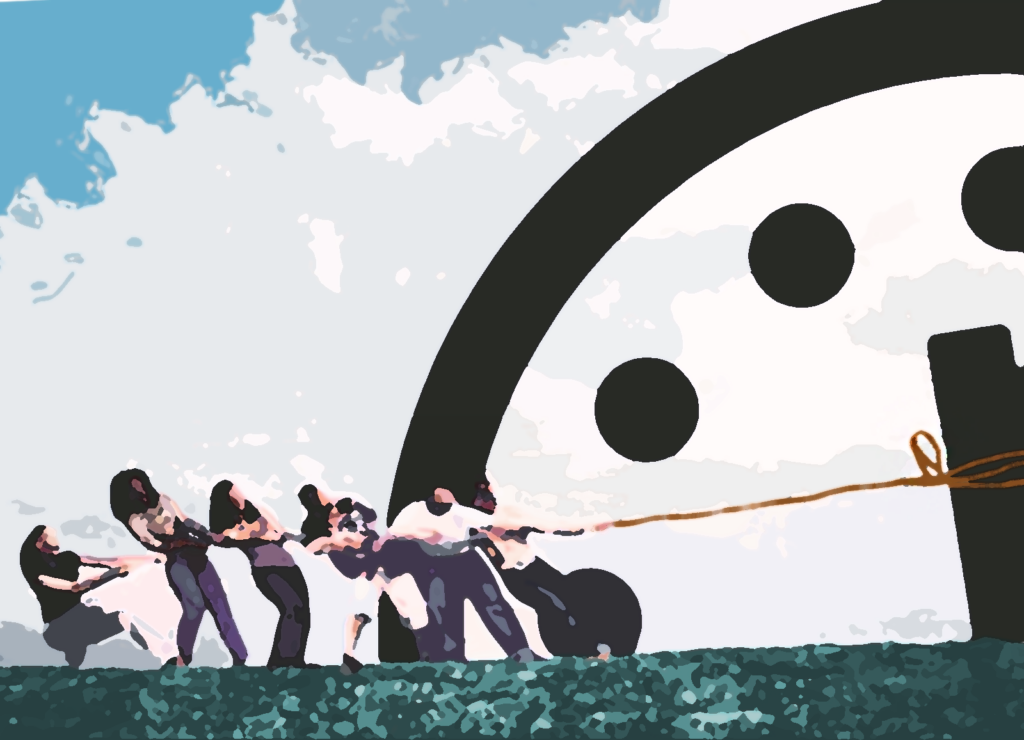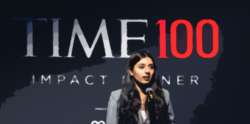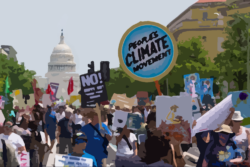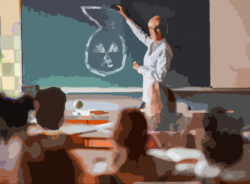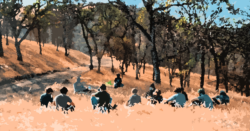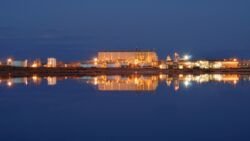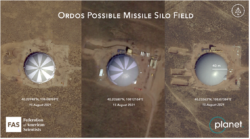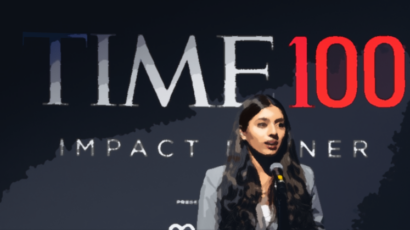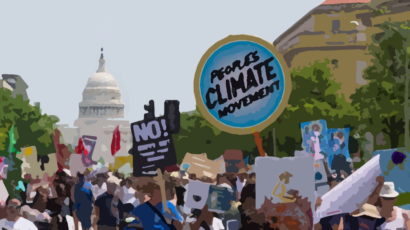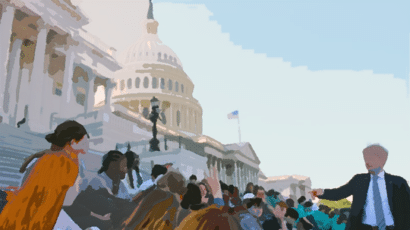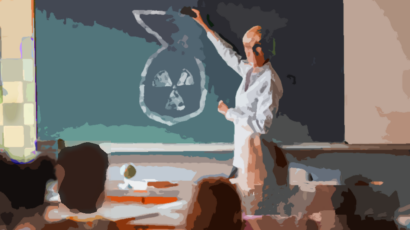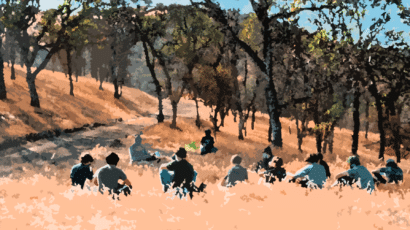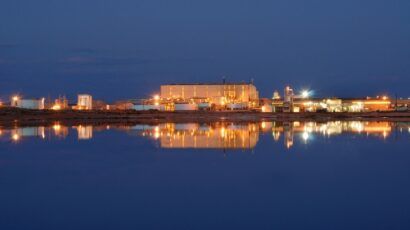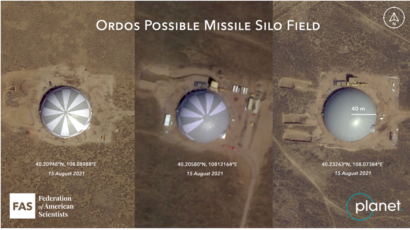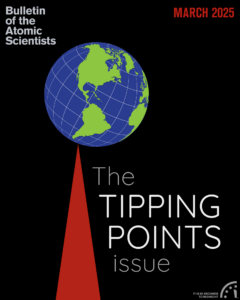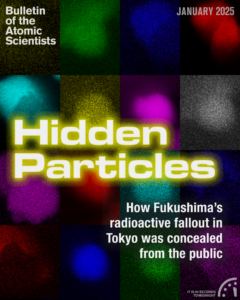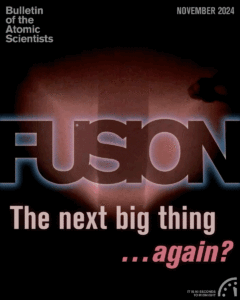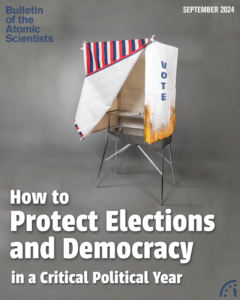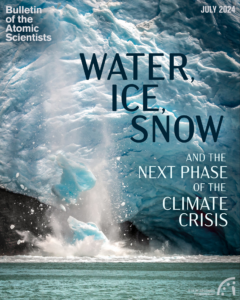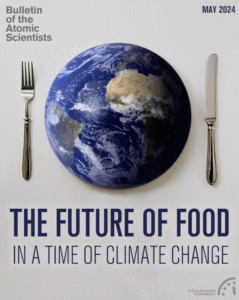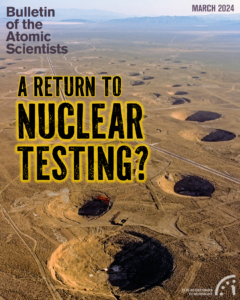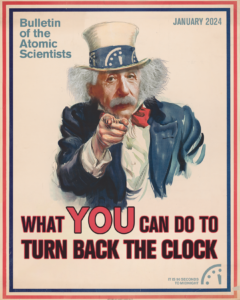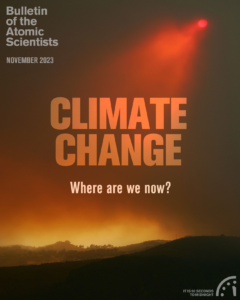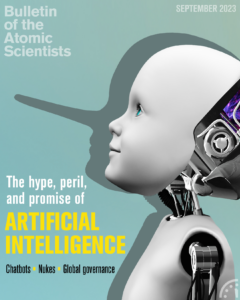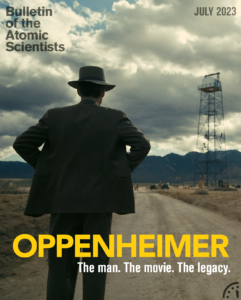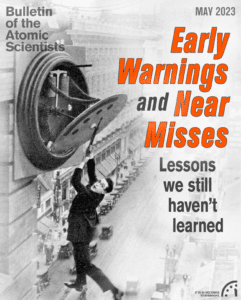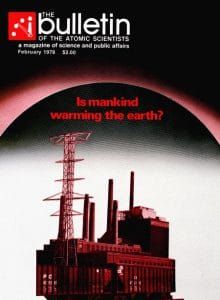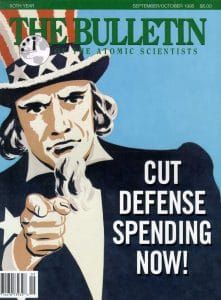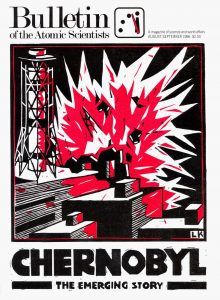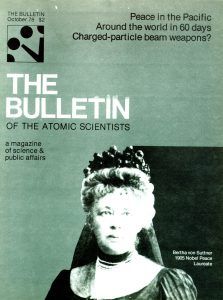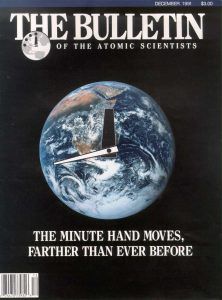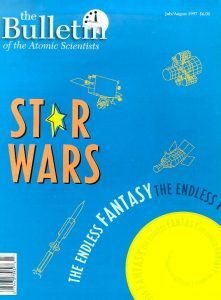DIGITAL MAGAZINE
January 2024
DIGITAL MAGAZINE
January 2024
January 2024
Introduction: What you can do to turn back the hands of the Doomsday Clock
Those who believe that they can succeed are usually the ones who do.
Interview with Sneha Revanur, “the Greta Thunberg of AI”
Whatever kind of AI is out there today is what teenagers and young college students are going to inherit tomorrow. Which is why 900 of them came together in "Encode Justice."
Bill McKibben explains what individuals can do to win the climate fight. Together.
Forty years from now, humans will run the planet on sun and wind, because they're such darn cheap energy sources. But if it takes us anything like 40 years to get there, then it’ll be a broken planet we run on sun and wind. "So the climate movement’s job is to catalyze that reaction, to make it happen faster than sheer economics would do," says this prominent chronicler of climate change.
Interview: California Congressman Ted Lieu on what you can do about existential threats
The best ways to influence your elected officials, from the point-of-view of an elected official.
How my Gen Z students learned to start worrying and dismantle the Bomb
A life-long opponent of nuclear weapons—raised during the Cold War—reflects on intergenerational lessons about activism, and teaching college students to embrace their curiosity, and their fear, on the way to saving the world.
“The world has already ended”: Britt Wray on living with the horror and trauma of climate crisis
It would be great for people to just have open-minded conversations with others about the climate crisis and what it means for them as a starting point. "But people’s defenses do go up if you start facting them over the head and trying to tell them what to do," says the author of Generation Dread. "I look at this more as a project to support those in need than it is to kind of convert those who are in other places."
Nuclear-free NYC: How New Yorkers are disarming the legacies of the Manhattan Project
Two of the people behind some of the most progressive nuclear disarmament legislation of any major city in the United States share some details of their work, to show what others can do to bring nuclear abolitionism home. They also give a sense of New York’s long history as a nuclear city—and as a hotbed of anti-nuclear activism.
Why a mindset of stubborn optimism about the climate crisis is needed, now more than ever
When it comes to climate change, there has been dramatic progress towards a number of positive tipping points—such as technological improvements in wind and solar power, huge increases in the adoption of electric vehicles and heat pumps, better battery storage—that could combine into a self-reinforcing cascade of positive change. Consequently, there is reason for stubborn optimism—a most useful tool in a most challenging climate.
Diversification from Russian nuclear fuel requires market-oriented solutions
Western countries are eager to reduce their dependence on Russian-origin nuclear fuel but are hindered by capacity constraints in uranium conversion and enrichment Governments should focus on providing market players with the incentives and certainty they need to protect their individual conversion and enrichment supply chains.
Chinese nuclear weapons, 2024
China is one of the fastest-growing nuclear arsenals among the nine nuclear-armed states. We estimate that China now possesses roughly 500 nuclear warheads, with more in production.
Interview with Sneha Revanur, “the Greta Thunberg of AI”
Whatever kind of AI is out there today is what teenagers and young college students are going to inherit tomorrow. Which is why 900 of them came together in "Encode Justice."
Bill McKibben explains what individuals can do to win the climate fight. Together.
Forty years from now, humans will run the planet on sun and wind, because they're such darn cheap energy sources. But if it takes us anything like 40 years to get there, then it’ll be a broken planet we run on sun and wind. "So the climate movement’s job is to catalyze that reaction, to make it happen faster than sheer economics would do," says this prominent chronicler of climate change.
Interview: California Congressman Ted Lieu on what you can do about existential threats
The best ways to influence your elected officials, from the point-of-view of an elected official.
How my Gen Z students learned to start worrying and dismantle the Bomb
A life-long opponent of nuclear weapons—raised during the Cold War—reflects on intergenerational lessons about activism, and teaching college students to embrace their curiosity, and their fear, on the way to saving the world.
“The world has already ended”: Britt Wray on living with the horror and trauma of climate crisis
It would be great for people to just have open-minded conversations with others about the climate crisis and what it means for them as a starting point. "But people’s defenses do go up if you start facting them over the head and trying to tell them what to do," says the author of Generation Dread. "I look at this more as a project to support those in need than it is to kind of convert those who are in other places."
Nuclear-free NYC: How New Yorkers are disarming the legacies of the Manhattan Project
Two of the people behind some of the most progressive nuclear disarmament legislation of any major city in the United States share some details of their work, to show what others can do to bring nuclear abolitionism home. They also give a sense of New York’s long history as a nuclear city—and as a hotbed of anti-nuclear activism.
Why a mindset of stubborn optimism about the climate crisis is needed, now more than ever
When it comes to climate change, there has been dramatic progress towards a number of positive tipping points—such as technological improvements in wind and solar power, huge increases in the adoption of electric vehicles and heat pumps, better battery storage—that could combine into a self-reinforcing cascade of positive change. Consequently, there is reason for stubborn optimism—a most useful tool in a most challenging climate.
Diversification from Russian nuclear fuel requires market-oriented solutions
Western countries are eager to reduce their dependence on Russian-origin nuclear fuel but are hindered by capacity constraints in uranium conversion and enrichment Governments should focus on providing market players with the incentives and certainty they need to protect their individual conversion and enrichment supply chains.
Chinese nuclear weapons, 2024
China is one of the fastest-growing nuclear arsenals among the nine nuclear-armed states. We estimate that China now possesses roughly 500 nuclear warheads, with more in production.
January 2024
Subscribe now
We've relaunched the Bulletin's award-winning digital magazine. Get access to every issue and our archive going back to 1945.
Magazine archive
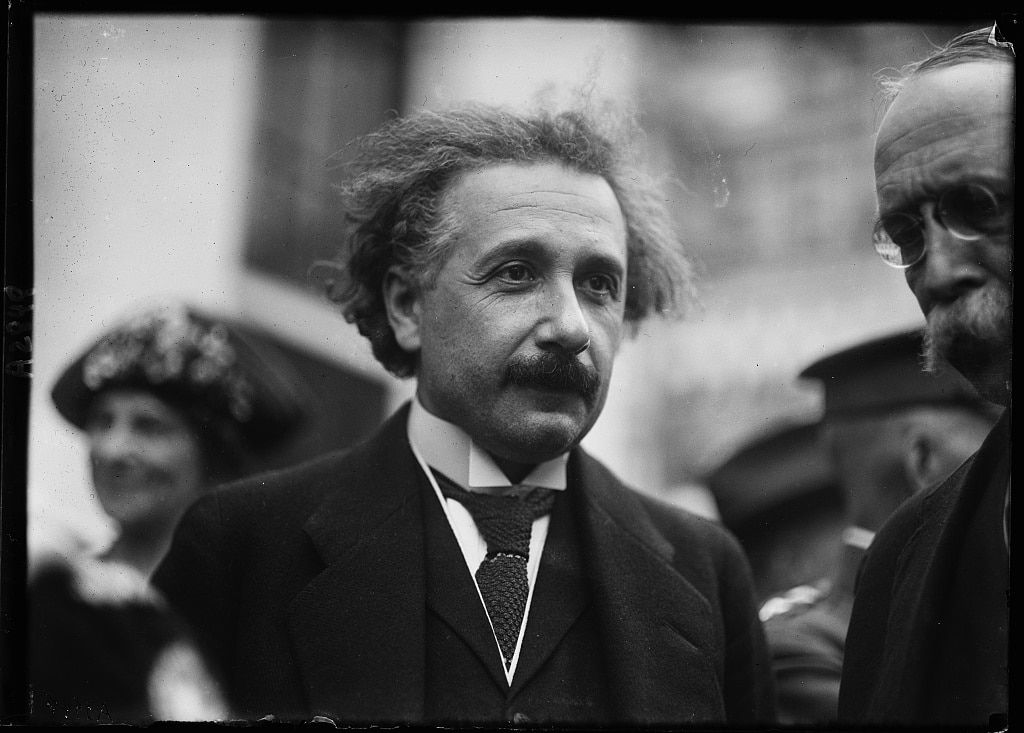
Premium subscribers can read the complete Bulletin of the Atomic Scientists’ archive, which contains every article published since our founding in 1945.
This archive was created in honor of John A. Simpson, one of the Bulletin’s principal founders and a longtime member of its Board of Sponsors. This searchable archive provides exclusive online access to original interviews and commentary by luminaries like Albert Einstein, J. Robert Oppenheimer, Ruth Adams, John F. Kennedy, Stephen Hawking, Christine Todd Whitman, US Secretary of Defense William J. Perry, and multiple Nobel laureates.

